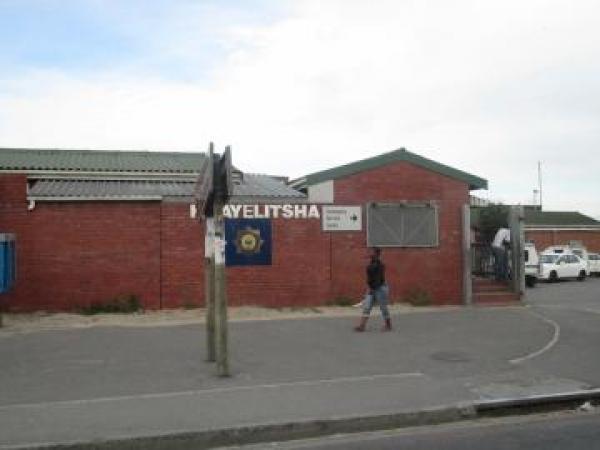Khayelitsha Development Forum boycotts policing inquiry

The Khayelitsha Development Forum (KDF) says there is no need for the Khayelitsha Commission of Inquiry into policing.
The Commission was finally launched at Lookout Hill last week after months of court battles by the police to stop it ended in failure in the Constitutional Court. The commission is chaired by former Constitutional Court Judge Kate O’Regan, and former Head of the National Prosecuting Authority Vusi Pikoli.
The Commission was called for in November 2011 by several organisations led by the Social Justice Coalition (SJC), which is based in Khayelitsha. On 22 August 2012 Premier Helen Zille announced the establishment of the inquiry. Minister of Police Nathi Mthethwa then launched litigation to stop the inquiry from proceeding.
“As KDF, we are saying, there is no need for the commission and that is our formal position,” said KDF Chairperson Ndithini Thido. “There are allegations that the KDF and the people of Khayelitsha call on taxis to deal with crime. That is nonsense. I want to put this on record: people who say this are people who seek tension for the purpose of funding.”
“We are saying that Khayelitsha must be well lit. Khayelitsha must have access to roads between shacks, so that the police can have access to these houses. So if these police are called to [make a] raid or for an emergency, then they must have access to those places. If they fail, then they can be called inefficient or ineffective.”
Thido called on Minister of Police Nathi Mthethwa to build a police station in Makhaza.
“The people of Makhaza can’t depend on Lingelethu police station and Harare police station. There must be a police station in Makhaza and we do not need a commission for that either,” he said.
The problems around policing are developmental issues, he said.
He went on to say there should be a police station or at least a satellite station in Site C. as well.
“And we hope that in future, our brothers and sisters in other organisations, should genuinely engage all stakeholders in Khayelitsha about what they say is the representative views of the majority in Khayelitsha, because it is clear that the commission is not a view of the majority”, he said.
Phumeza Mlungwana, General Secretary of Social Justice Coalition (SJC), which led the campaign for the commission and was also involved in a successful campaign earlier this year for streetlights in Khayelitsha to be repaired, said she was disappointed by the KDF’s position.
The KDF invited Mthethwa to say a prayer at OR Tambo Hall about safety in Khayelitsha. But, says Mlugwana, “We have many churches here in Khayelitsha. We have elders that are pastors who are also activists. They have been praying in their own churches for years for safety in Khayelitsha. There was no need for the Minister to come all the way to give a prayer. We need action.”
The KDF was formally established in 1994 and launched in December 1995. Its stated purpose is to unite stakeholders in Khayelitsha. It claims that it “organises, mobilises and manages structures of Khayelitsha for sustainable development.”
It has been the dominant organisation in the Khayelitsha policing forums, of which there is one for each of the township’s three police stations. But a police task team report in July 2012 was critical of these forums and painted a picture of them being dysfunctional.
According to a GroundUp editorial in November 2012:
For one station, the report states, that the “poor relationship between the management” of the police and the forum “is not conducive for effective co-operation and partnership policing.” For another station, the report states that it is not clear what the objectives off the weekly meetings of its forum are.
…
And the police don’t seem that interested in the forums either: A seminar to look at safety was arranged by the forums on 7 July 2012, but the police did not attend.
The forum for the Lingelethu West Police station appears to function better than the forums of the other two police stations in Khayelitsha, but it is certainly not a shining example of success either. The sole contribution of the members of the forums to the task team investigation was to criticise the SJC and dispute the need for an inquiry.
The task team concluded that the “structures established by the Constitution to enhance police-community relations” are “not functioning effectively” nor “optimized in the Khayelitsha area.”
Support independent journalism
Donate using Payfast

Don't miss out on the latest news
We respect your privacy, and promise we won't spam you.
Next: The week in political activism
Previous: Parow soup kitchen offers vital service to hungry and homeless

This article is licensed under a Creative Commons Attribution-NoDerivatives 4.0 International License.
